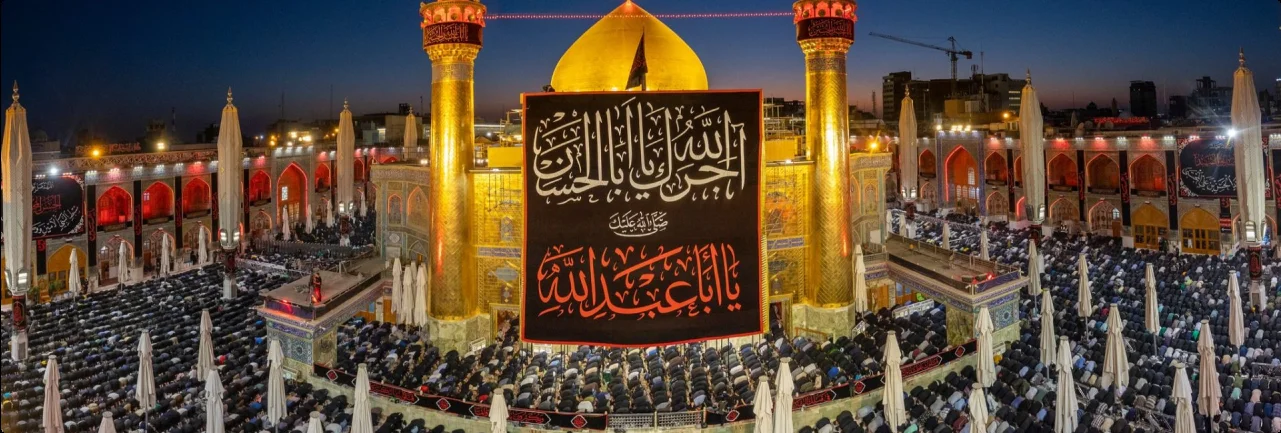Najaf: A Historical and Educational Beacon in the Heart of Iraq

Najaf, a city steeped in religious and historical significance, stands as a testament to the rich heritage and intellectual legacy of Iraq. Renowned for its profound spiritual importance and its esteemed educational institutions, Najaf has long been a center of Islamic scholarship and learning. This blog explores the fascinating history of Najaf and its pivotal role in shaping Islamic education.
A Storied Past: The Historical Significance of Najaf
- Foundations and Early History:
- Ancient Roots: Najaf’s history dates back to ancient times, but it gained prominence as a significant Islamic city after the advent of Islam.
- Imam Ali’s Shrine: The city is most renowned for housing the shrine of Imam Ali A.S, the fourth caliph and the first Imam of Shia Islam. His burial site has transformed Najaf into a major pilgrimage destination.
- Medieval Period:
- Religious and Political Hub: During the medieval era, Najaf emerged as a crucial center of Shia political and religious life. It became a focal point for scholars and theologians.
- Ottoman Era: Under Ottoman rule, Najaf continued to be a significant center of Shia scholarship, further cementing its reputation as a hub of learning.
Educational Legacy: The Intellectual Heartbeat of Najaf
- Theological and Religious Schools:
- Hawza Ilmiya: The city is home to the Hawza Ilmiya, one of the most prestigious Shia seminaries. Founded in the 10th century, it has been a beacon of Islamic jurisprudence and theology.
- Curriculum: The Hawza Ilmiya offers rigorous studies in various Islamic sciences, including jurisprudence (fiqh), philosophy, and exegesis (tafsir). Its scholars are renowned for their deep knowledge and intellectual contributions.
- Influential Scholars:
- Historic Figures: Najaf has produced numerous influential scholars and jurists, such as Sheikh Mufid, Sheikh Tusi, and Allama Hilli, who have made significant contributions to Islamic thought and jurisprudence.
- Contemporary Scholars: The city continues to be a training ground for modern scholars who shape contemporary Islamic discourse and scholarship.
- Cultural Contributions:
- Literary Achievements: Najaf’s scholars have made substantial contributions to Arabic literature and Islamic philosophy. Their works are studied and revered across the Islamic world.
- Preservation of Knowledge: The city’s libraries and institutions have played a crucial role in preserving and disseminating Islamic knowledge throughout history.
Najaf Today: A Modern Center of Learning and Faith
- Educational Institutions:
- Modern Developments: Today, Najaf remains at the forefront of Islamic education, with institutions that blend traditional teachings with modern academic approaches.
- International Influence: The city attracts students and scholars from around the world, continuing its tradition as a global center of learning and intellectual exchange.
- Pilgrimage and Education:
- Synergy of Faith and Learning: The pilgrimage to Najaf’s shrine is often accompanied by a pursuit of education. Many pilgrims take advantage of their visit to engage in scholarly activities and attend lectures.
Conclusion: Najaf’s Enduring Legacy
Najaf stands as a city of profound historical and educational significance. Its rich past, marked by the veneration of Imam Ali A.S and its role as a center of Shia scholarship, continues to shape its present and future. The city’s educational institutions uphold a tradition of excellence, fostering intellectual growth and spiritual enlightenment. Najaf’s unique blend of historical reverence and scholarly pursuit makes it a beacon of Islamic education and a profound symbol of faith and learning.
Whether through its ancient historical landmarks or its vibrant contemporary academic scene, Najaf remains a testament to the enduring legacy of Islamic scholarship and spirituality.
Comments






No comments yet.